
Interview with Jonathan Reynolds (Labour MP for Stalybridge and Hyde)





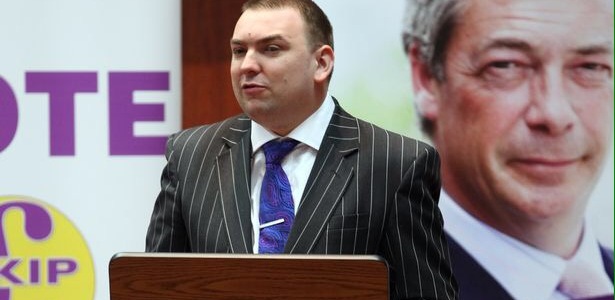
My second interview is with the former UKIP General Secretary, Jonathan Arnott, who explains what Brexit will mean for young people from a different point of view.
Were you surprised by the result of the EU referendum?
I was expecting a vote for Leave about 10 days before the referendum. The polls were starting to show a significant lead for Leave, and all the momentum was in our direction.
On the night, I was thinking that things might just have slipped the other way. I wasn’t seeing quite the same amazing reaction when out campaigning, and I was worried that people would get cold feet and vote to stick to the status quo.
When the first result was declared, in Newcastle, I became very confident. We expected to get 43-44% of the vote in Newcastle if the race was going to be close, but we got 49.3%. That was the point at which I started to believe we were most likely to win, although the bookies still expected us to lose at that point!
How will the result benefit young people?
I get questions like this a lot, and actually I don’t agree with the premise of the question too much. Not all young people are the same, and what’s good for a young person in the world of work may be very much different for what’s good for a young person at university, or a young person who’s just started a family.
It’s not possible to completely separate ‘young people’ from the rest of society in that way. I’m asked this a lot in terms of universities, where I think a fairer system – one which doesn’t discriminate between EU and international students, perhaps a little tougher for EU students and a bit less tough for non-EU students – might be a little fairer and less discriminatory.
I’ve seen young people looking for work who have struggled because of the unlimited immigration from the EU; that’s only the case in certain sectors, but if someone comes to the UK who is experienced, qualified and prepared to work here on minimum wage (because it is still a huge pay rise from their home country), then they are likely to get a job and it makes it harder for young people to get their first step on the career ladder.
But the bottom line, I think, is that Brexit will give us the chance to govern ourselves again. In one way it is reasonable to talk about ‘young people’ in general: young people are the future. A future after Brexit gives us the chance to develop our trade links with a wider world, to stop focusing on the 440 million citizens of the EU27 and to look at the 6.5+ billion across the rest of the world. The ability to shape our destiny is a powerful thing.
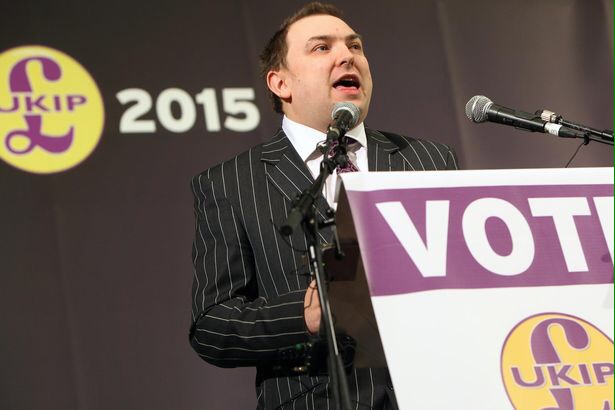
Now that Britain has left the ‘undemocratic’ EU, will UKIP campaign to reform the unelected House of Lords?
I have said many times that I believe we need electoral reform in this country. That means reforming the House of Lords to make it elected, introducing a fairer voting system in Westminster and more direct democracy. It means devolution of power as close as possible to the citizen. That’s pretty much a UKIP view, though maybe I feel more strongly about this than many other people in UKIP do.
Will we still have free healthcare abroad and freedom of movement now we’ve left the EU?
All of this depends on the deal which we negotiate with the EU.
We don’t have free healthcare abroad at the moment. For example, friends of mine were visiting Belgium when their son had an accident and broke his ankle. The medical treatment was very good, and they had the appropriate EHIC card, but they still received a medical bill for several hundreds of euros. Similar situations exist in other countries.
It’s a reciprocal arrangement which is good for the people of the UK. But we also have these kinds of arrangements with a number of other countries worldwide, from Serbia to Australia and New Zealand via Barbados.
I want the arrangement we have at the moment to continue, but of course Norway and Switzerland both have deals that include the healthcare agreement. So basically we’ll keep the healthcare arrangements if we either a) Remain in the EEA, b) Rejoin EFTA, or c) negotiate a reciprocal agreement with the EU.
As for freedom of movement, I want us to keep visa-free travel access to the EU (like we have with 100+ countries worldwide already). I don’t see that as being a problem, because it’s just as much in the EU’s interests for that to continue as it is in ours.
If you mean free movement of workers though, that’s a euphemism for unlimited immigration from the European Union. This has a negative effect in my view. Immigration is a good thing as long as it’s controlled, but the free movement of workers rule in the EU prevents that control. It leads to distortions in the market, and has a negative impact on jobs and causes wage compression in some unskilled and semi-skilled sectors.
I want to see us be able to control who comes to live and work here from the European Union. Whether that happens depends upon the deal that’s negotiated between us and the EU.
Will you stand as an MP after you’ve left your job as an MEP?
I haven’t decided yet, although it might be nice to sit in a proper Parliament! I think I’ll have to wait and see what happens.
When I say proper Parliament, the problem with the European Parliament is that MEPs have so little power: we’re really little more than an amending chamber. We don’t have the right to initiate legislation, speaking time is so strictly controlled that my microphone is often cut off after 60 seconds (some debates last as little as 5 minutes), and there are times when I’ve voted 1,000+ times in 3 days – how can anyone possibly be an expert in everything they’re voting on in a system like this?
Westminster has its faults, but they’re not a patch on the problems in Brussels/Strasbourg.
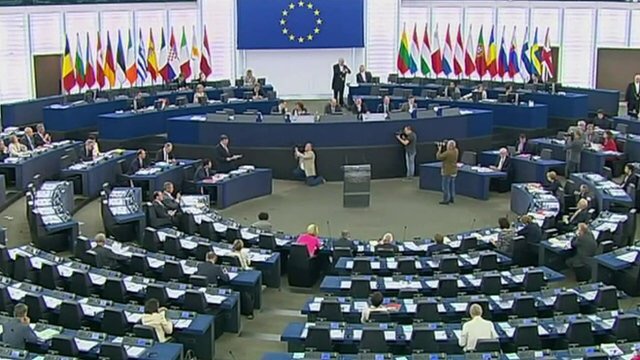
Which candidate for the Conservative leadership would you like to see negotiate Britain’s exit from the EU?
A difficult question to answer before we know who the candidates actually are, and I haven’t decided who I would prefer (I’m not a Conservative, so I don’t exactly have a vote or a vested interest), but here’s what I’m thinking so far. Not Boris. It’s just a gut feeling, but I’m not sure I’d trust him as PM. Grayling, Crabb and Hunt don’t exactly inspire me, Liam Fox is possible and would be a safe pair of hands maybe. Andrea Leadsom impressed on the TV debates and would be a possibility. I could see them perhaps choosing Theresa May as a unity candidate. She supported Remain but is quite critical of the European Union. If she gets the support from both sides of the party, she might well win.

After the EU referendum result, I decided to get in touch with some politicians and find out what happens now that the country has voted to leave the European Union. In my first interview of the series, I asked the Plaid Cymru MP Liz Saville Roberts some questions.
Were you surprised by the result of the EU referendum?
At a Wales national level: intellectually, yes I was surprised; but, emotionally, no. Like many of my friends and colleagues, I believed that the rational argument to remain in the EU and evidence of Wales’s past benefits from our membership would be apparent. Like them again, I also believed that the murder of Jo Cox MP would be influential and unifying in its abhorrence. I did not appreciate the disconnect between this perception and the atomised reality of people’s lives, and how the popular and repeated messages of blame and fear would resonate with so many voters.
In my own constituency, Dwyfor Meirionnydd, I am proud that the majority voted to remain in Europe, and not surprised. The voting patterns have yet to be analysed thoroughly, but, on first viewing, appear to be mostly predictable. Although the Remain campaign came fast on the heels of the Assembly elections, there were street stalls in towns and Plaid Cymru branch teams distributed leaflets in communities. These were initiated by Plaid Cymru with the support of the Wales Remain campaign. The matter was discussed by the two farming unions and also by some community groups and churches. The independent local paper – Cambrian News – ran columns outlining the arguments of Remain and Brexit in the final weeks.
Why do you think Wales, overall, voted to leave the EU?
English-speaking Wales is ill-served by the UK media, which has been in thrall to Nigel Farage prior to the point when UKIP acquired the democratic legitimacy which the party now possesses.
Welsh Labour have singularly failed to build national awareness in Wales since 1999. This has served them well in the short term as Welsh Government’s performance has not been held up to public scrutiny. It is now a threat to Wales’s identity. The Brexit vote in Labour constituencies is Labour’s responsibility, and an indication of weak and self-satisfied leadership. Wales remains in poverty, and it appears that people have either not responded to EU-funded capital projects, or interpreted them as only sticking plaster over long-term economic stagnation.
I would note that Welsh-speaking regions, Cardiff and two relatively wealthy local authority areas were supportive of remaining in Europe. Alongside these were the university towns and cities, with the exception of Swansea. To me this greater engagement – and passion for Europe – among Remain campaigners was a combination in different regional measures of Plaid Cymru leadership, a few Welsh Labour voices, stronger financial confidence, and of, course, a young and well-educated vote. Welsh Tories were either very vocal in backing the Leave campaign, eg David T C Davies and David Jones, or ineffective in their support of the official UK government Remain campaign. The official Wales Remain campaign was not particularly effective: its messages lacked passion, literature was disorganised and not consistently bilingual, and it had scant organisational reach across Wales.
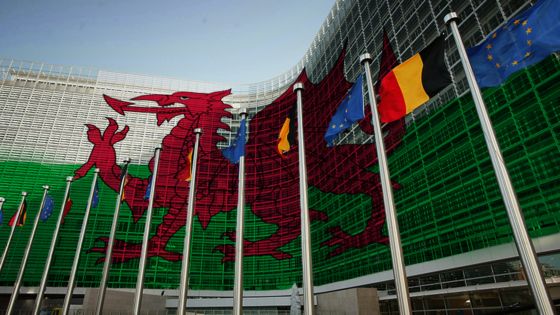
What does this result mean for young people?
This is without doubt a terrible vote for young people in terms of employment, social and educational prospects. It reflects an inward-looking society, dominated by the world view and fears of older generations, a culture of blaming others, nostalgia for the imagined past, and shrugging off responsibility for the future of younger generations.
What would you like to see in the post-Brexit deal for Wales and the UK as a whole?
I expect UK negotiating politicians to work for the following: free trade, freedom of movement for travel, education and employment, agreements on environmental measures, co-operation on crime, terrorism and extra-Europe immigration, co-operation on health, co-operation on agriculture.
Wales must have a new fiscal framework on the basis of a UK-wide policy to eliminate poverty and improve social equality; a new Wales Bill to put in place a full reserved powers model on the basis of subsidiarity, and to include devolution of legal jurisdiction, policing and broadcasting; devolution of a wider range of taxes, including income and corporation tax; improved workers’ rights; structures to facilitate communications between Welsh and UK/English Ministers on the basis of equality: a UK Council of Ministers; news structures to represent Welsh interests in UK institutions including Bank of England, UK Trade and Industry, etc.
Welsh government should negotiate directly with Europe, especially in relation to trade, agriculture and disadvantaged regions, and also be among the negotiators in the Brexit discussions. Wales must also create new working arrangements with Ireland.
The UK must not withdraw from the European Court of Human Rights, and I look forward to an extension of the influence of the International Criminal Court.
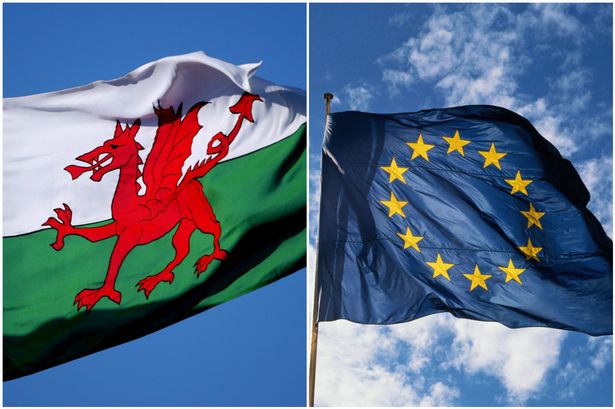
How can young people who are disappointed with the result become engaged with politics in the future?
This is not young people’s fault. Indeed, those of us who campaigned for Remain must resist the urge to dismiss and isolate voters of all ages from empoverished regions who used the democratic process on offer as an opportunity to protest. The fact that we did not agree on June 23 should not divide us further. This is a wake-up call to society to address poverty: economic poverty and poverty of ambition. To address isolation and hopelessness. To redress the need to blame others – the immigrant scapegoat, and to recognise that these are alarm calls for wider concerns such as employment, identity, housing and family cohesion, and to acknowledge that these concerns are valid in people’s day-to-day lives.
I hope that young people will hold politicians to account, and that registering to vote will be a priority through organisations such as colleges, training providers and universities. Wales should bring in the right to vote at 16, and promote voting with popular role models. Pupils’ and students’ councils should have greater responsibilities in schools and colleges.
Wales should embed citizenship in education at all levels, including teacher training. The quailty of education must be prioritised and celebrated. Educational standards in numeracy, literacy and learning ambition will only be improved by continually enhancing the quality of teaching, and the wider status of education. The universities of Wales should play an explicit role in building the future of Wales.